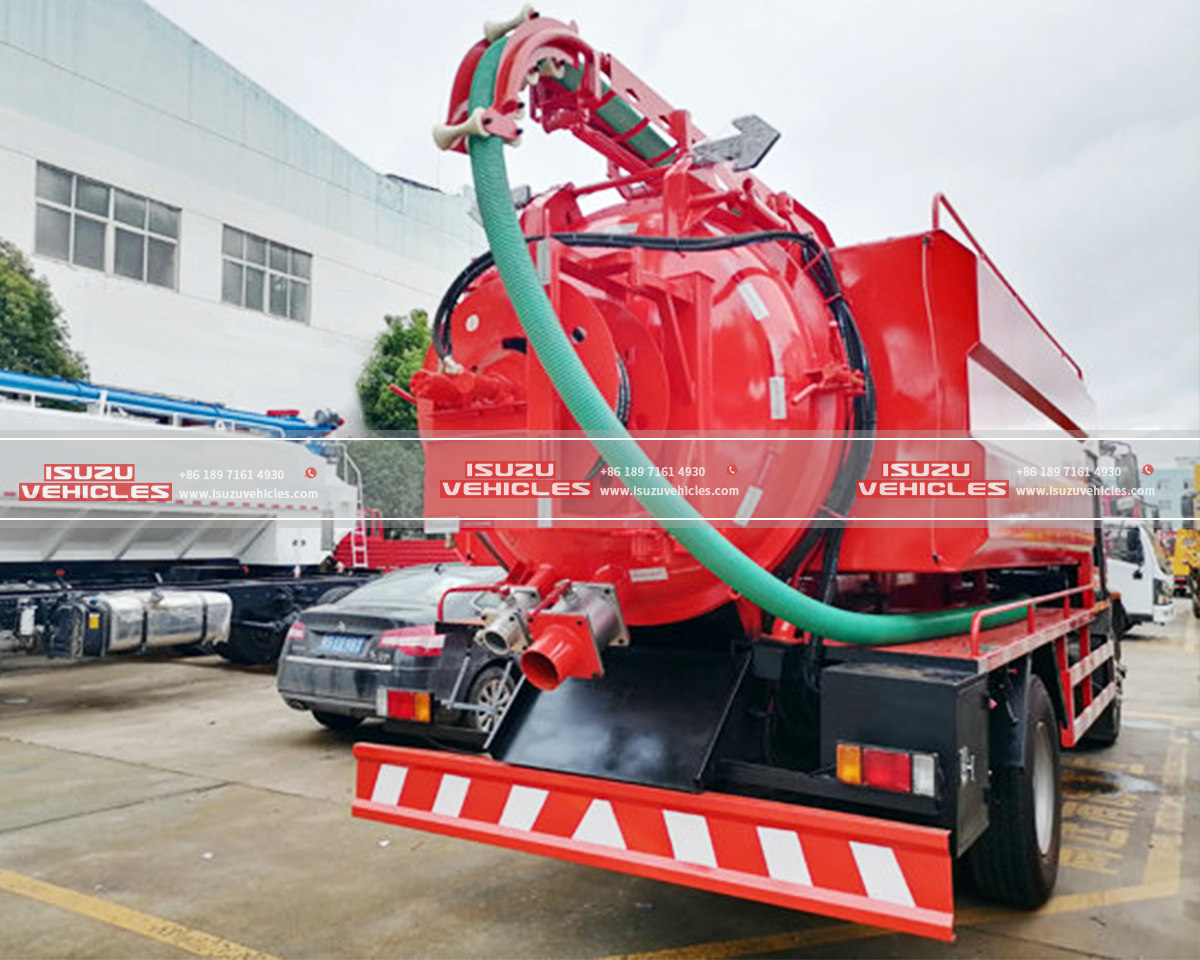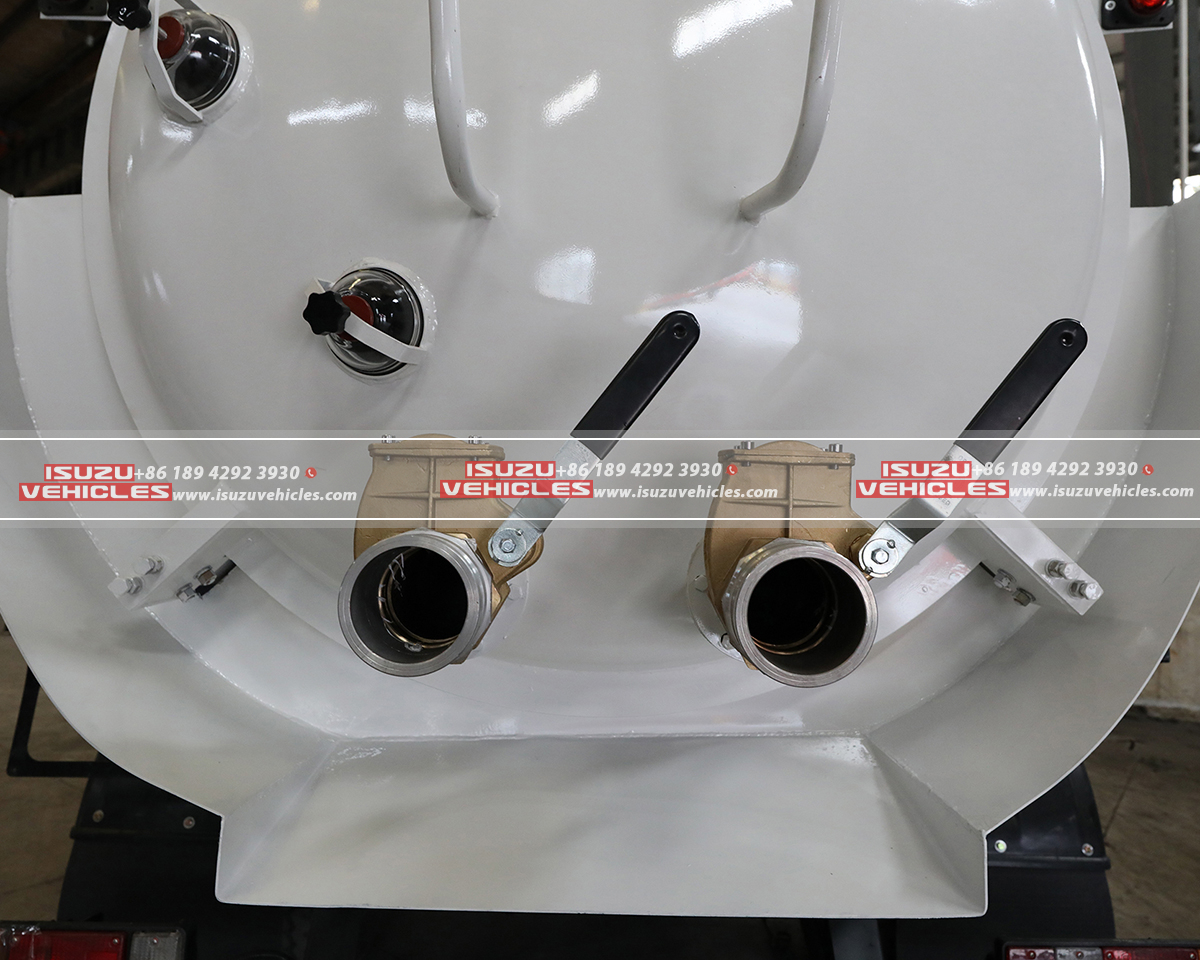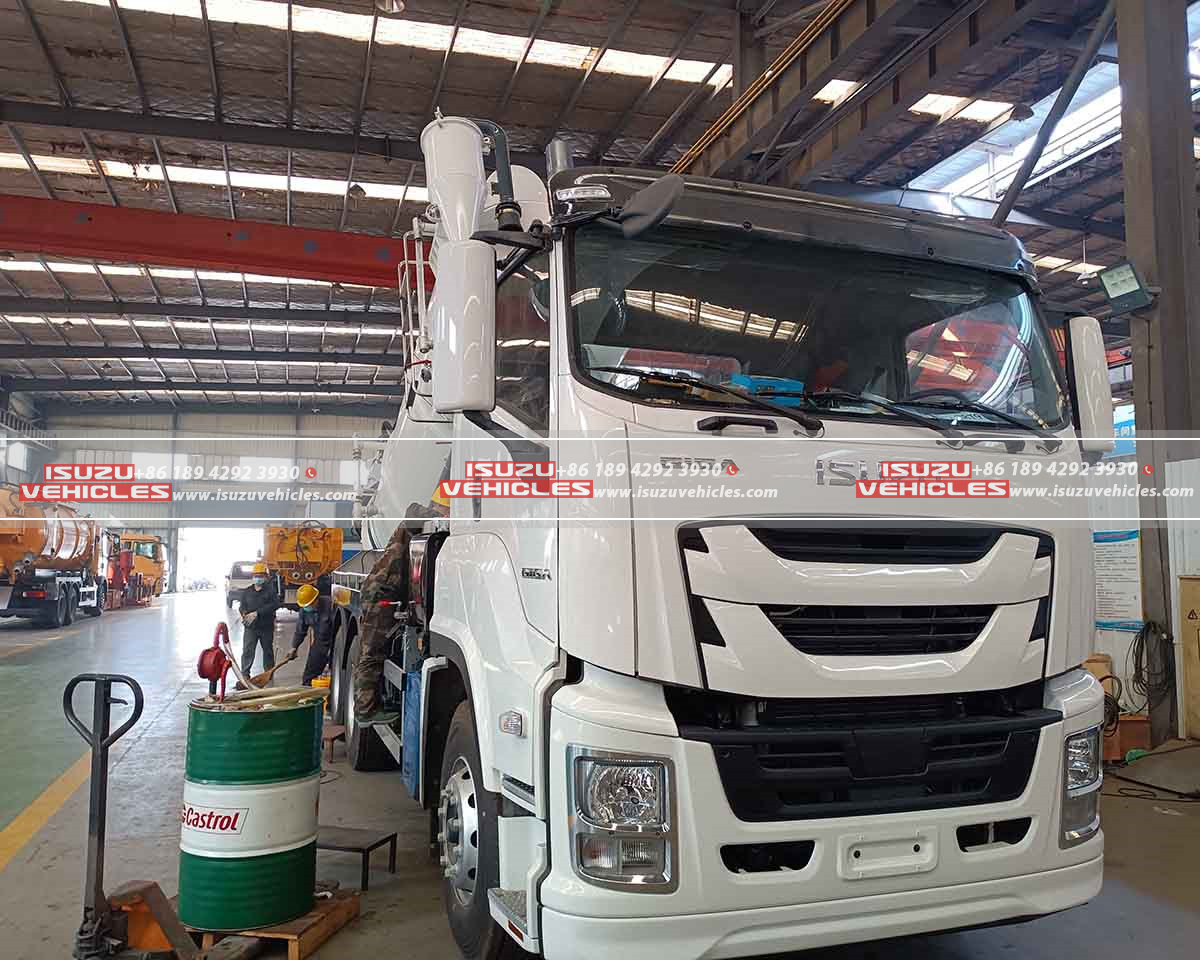Part 1: Introduction — Addressing the Waste Management Crisis in Africa
Africa has been grappling with serious waste management challenges for decades, which have had significant implications for both public health and environmental sustainability. In many African cities, outdated infrastructure, lack of adequate resources, and growing urban populations have made effective waste disposal a daunting task. Traditional methods of waste collection and treatment are often inadequate, leading to the contamination of water sources, the spread of diseases, and detrimental impacts on ecosystems. This ongoing crisis requires innovative solutions, and ISUZU’s recent introduction of advanced sewer trucks has proven to be a game-changer in transforming the way African countries manage and handle their waste.
ISUZU’s entry into the African waste management sector marks a new era in sanitation infrastructure, with sewer trucks designed specifically to address these pressing needs. By leveraging modern technology and robust design, these trucks provide a much-needed upgrade to conventional waste disposal methods. They enable more efficient, hygienic, and environmentally friendly management of sewage and wastewater, filling a critical gap in sanitation services across the continent. As these trucks are deployed across multiple African countries, they are poised to significantly improve public health and elevate the standard of living for communities.

Part 2: Advanced Technology — How ISUZU’s Sewer Trucks Revolutionize Sanitation
ISUZU’s sewer trucks stand out due to their cutting-edge technology and unique features, making them indispensable assets in tackling Africa’s sanitation issues. These vehicles are equipped with powerful suction systems that can handle large volumes of sludge and sewage, making the extraction and transportation of waste more efficient than ever before. Additionally, their high-pressure water jets are designed to clear blockages in sewage lines, ensuring that the entire waste disposal process is not only effective but also quick and environmentally safe. This technological edge minimizes operational downtime and reduces the need for frequent maintenance, which is crucial in regions with limited technical support.
Another notable feature is the GPS tracking and real-time monitoring system integrated into these trucks. This technology allows for precise route planning and operational oversight, reducing fuel consumption and optimizing resource utilization. Waste management teams can now remotely track each vehicle’s location, monitor waste levels, and ensure that trucks are deployed to areas with the highest demand. Such efficiency is vital in cities where sanitation issues are compounded by rapid urbanization and limited municipal budgets. ISUZU’s approach leverages technology to create a comprehensive waste management solution that addresses both current needs and future challenges.
Sub-Title: Promoting Environmental Safety with Emission Controls
In addition to enhancing efficiency, ISUZU’s sewer trucks are designed with environmental protection in mind. They feature low-emission engines that meet international environmental standards, helping to reduce the carbon footprint associated with traditional waste management vehicles. This focus on sustainable operation aligns with global efforts to mitigate climate change and promote greener urban planning. The combination of advanced waste handling technology and eco-friendly engineering makes ISUZU’s trucks not just tools for waste removal but essential components of a sustainable urban infrastructure.

Part 3: Implementation Impact — Real-World Benefits for African Communities
The deployment of ISUZU’s sewer trucks across various African countries has already started showing a positive impact on local communities. By enhancing the efficiency and scope of waste collection services, these trucks are helping to significantly reduce health risks associated with untreated waste and poorly maintained sewage systems. In areas where sanitation was once a persistent challenge, ISUZU’s trucks have facilitated cleaner environments, leading to improved water quality and a reduction in disease outbreaks such as cholera and dysentery. This direct improvement in public health outcomes showcases the tangible benefits of investing in modern sanitation technology.
In addition to public health, the economic impact of these trucks is also substantial. Creating jobs and boosting local economies is one of the secondary benefits of deploying ISUZU’s technology in waste management projects. Training local technicians and operators to handle and maintain these advanced vehicles creates new employment opportunities, while the improved sanitation infrastructure attracts investment and supports economic growth. In countries where underdeveloped sanitation systems have been a major barrier to urban development, ISUZU’s trucks are playing a crucial role in unlocking economic potential by providing a stable foundation for growth.
Sub-Title: Enhancing Community Awareness and Responsibility
One of the unexpected yet important outcomes of implementing ISUZU’s sewer trucks has been a heightened sense of community responsibility toward sanitation. As residents witness the visible improvements in waste management, there has been a growing awareness of the importance of maintaining clean and safe environments. Community organizations and local governments are increasingly partnering to support waste reduction initiatives, such as recycling programs and proper waste segregation. ISUZU’s presence has thus catalyzed a broader shift in public perception and behavior, encouraging communities to take a more proactive role in managing their environment.

Final Thoughts — A Transformative Force in African Sanitation
ISUZU’s advanced vacuum sewer trucks are more than just vehicles; they represent a transformative force in African sanitation. By combining innovative technology, environmental sustainability, and practical solutions, these trucks are setting new standards for waste management across the continent. They are tackling longstanding challenges with modern solutions, creating safer, healthier, and more livable communities.
